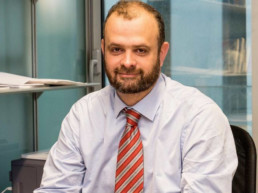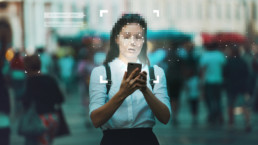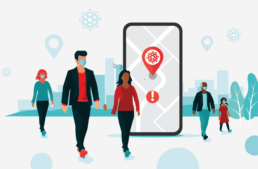A Smart Courthouse in a Smart City
A Smart Courthouse in a Smart City
Date: October 28, 2022 - h 16.30 (Italian time)Where: Aula Rostagni, Physics and Astronomy Dept
Technological developments are revolutionizing how we live together in a physical as well as in a legal sense. The deployment of technologically advanced and AI-based solutions is transforming the legal environment. The talk will focus on the technological turn in judicial proceedings in light of the broader movements to make our civilization “smart.”
The seminar will also be live-streamed on YouTube channel "Aula Rostagni UniPadova DFA”
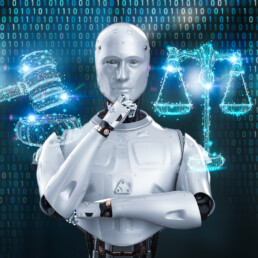
conference speaker
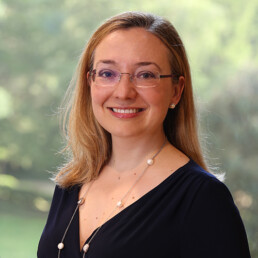
Iria Giuffrida
Iria Giuffrida is a Professor of the Practice of Law at William & Mary Law School and is the Interim Director of the LL.M. Programs. She also serves as Visiting Faculty for Business Law at the Raymond A. Mason School of Business. Professor Giuffrida’s research focuses on the legal issues arising from the increasing use of artificial intelligence, the rapid growth of the Internet of Things and smart cities, and related emerging technologies. In her previous professional life, she was a commercial litigator and gained substantial experience in international alternative dispute resolution. She is admitted to practice in the State of New York, is a Solicitor in England and Wales, and has qualified as a Solicitor in the Republic of Ireland. She is also a certified information privacy professional (CIPP/US). Professor Giuffrida graduated with an LL.B. in English and European Law from Queen Mary, University of London. She was the 2001 Drapers’ Scholar at William & Mary Law School, where she obtained an LL.M. She was later awarded a Ph.D. in Law by Queen Mary, University of London.
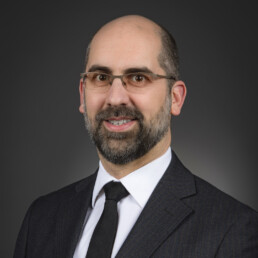
Nicolas Vermeys
Nicolas Vermeys, LL. D. (Université de Montréal), LL. M. (Université de Montréal), CISSP, is the Director of the Centre de recherche en droit public (CRDP), the Associate Director of the Cyberjustice Laboratory, and a Professor at the Université de Montréal’s Faculté de droit. He is also a visiting professor of law at both William & Mary (USA) and the University of Fortaleza (Brazil). Mr. Vermeys is a member of the Quebec Bar, as well as a certified information system security professional (CISSP) as recognized by (ISC)2, and is the author of numerous publications relating to the impact of technology on the law, including Droit codifié et nouvelles technologies: le Code civil (Yvon Blais, 2015), and Responsabilité civile et sécurité informationnelle (Yvon Blais, 2010). Mr. Vermeys’ research focuses on legal issues pertaining to artificial intelligence, information security, developments in the field of cyberjustice, and other questions relating to the impact of technological innovations on the law. He is often invited to speak on these topics by the media, and regularly lectures for judges, lawyers, professional orders, and government organizations, in Canada and abroad.
Metabolic ecology of microbial communities: from simple experiments to big data and back
Metabolic ecology of microbial communities: from simple experiments to big data and back
Date: September 21, 2022 - h 11.30 (Italian time)Where: Meeting room 207, entrance from via Paolotti, 2/a
Microbes assemble in diverse communities responsible for crucial functions, such as regulating the response of the biosphere to environmental variation and driving the bulk of elemental cycles. Understanding the factors shaping microbial community assembly is pivotal to predict the functioning of ecosystems in a rapidly changing world and design interventions to mitigate the loss of biodiversity and ecosystem services. In this talk, I will outline mechanistic links between changes in the diversity and structure of microbial communities and variations in fundamental environmental variables, specifically temperature and available nutrients. My work shows the power of combining theory-informed controlled experiments with data from communities in natural habitats to get a mechanistic understanding of the principles governing microbial community assembly.
ZOOM link: https://unipd.zoom.us/j/
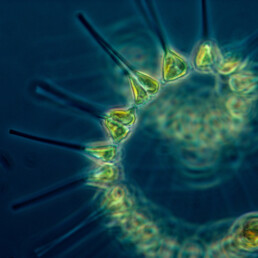
conference speaker
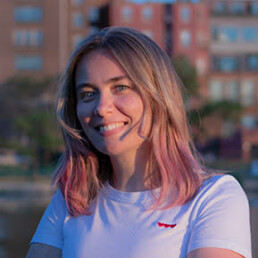
Martina Dal Bello
Martina is a microbial community ecologist and currently she is a research scientist in the lab of Jeff Gore at MIT. Martina holds a PhD in marine ecology from the University of Pisa, where she investigated the impacts of pulse perturbations and the occurrence of regime shifts in microbial and algal communities of rocky shore habitats by performing field experiments. She joined the Gore lab as a postdoc in 2017 to study the drivers of microbial community diversity using controlled laboratory experiments amenable to mathematical modeling. Her research aims at getting a mechanistic understanding of the relationship between environmental variables and microbial community assembly.
Digital Transformations in the News Industry and in the Economy: A Journey
Digital Transformations in the News Industry and in the Economy: A Journey
Date: March 15, 2022 - h 16.30 (Italian time)Where: Aula Rostagni, Physics and Astronomy Dept
What has digitalization meant for the economy and the news industry? How has the infosphere affected the job of journalists, the role of newspapers, and businesses? Marco Bardazzi had first-hand experience of such phenomena. An accomplished journalist, he transitioned from the traditional newspaper industry to the contemporary social media-dynamics that produce and spread news in real time. His talk will focus on how businesses navigate information society.

conference speaker
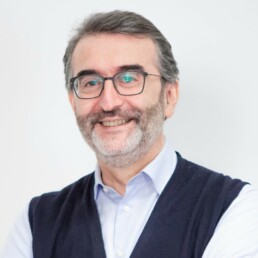
Marco Bardazzi
A professional journalist, Marco Bardazzi is the co-founder of Bea – Be a Media Company, a strategic communication agency based in Milan, Italy. From 2015 to 2020, Marco was Communications Director at ENI. As Executive Vice President, he was in charge of external communications, digital strategy, data analytics and reputation management in the Italian-based energy company, which is active in 60 countries with about 34,000 employees. Before joining ENI in 2015, he was Managing Editor and Digital Editor at La Stampa, a leading European newspaper, where he led the transformation of a traditional newspaper founded in 1867 into an integrated digital news organization.
Before joining La Stampa, Marco was U.S. Correspondent for the Italian news agency ANSA, for which he covered the 2000 Bush-Gore electoral race for the White House; the first international Al Qaeda trial in Manhattan; the September 11, 2001 attack on America the war in Afghanistan; the war in Iraq the 2004 and 2008 presidential campaigns.
Marco teaches at the Master of Journalism at the Catholic University of the Sacred Heart (Milan). He was awarded the 2017 Communicator of the Year prize at Premio Ischia. As a journalist, he received the Premio di Giornalismo Saint-Vincent Prize.
The Deep Cooking Era
The Deep Cooking Era
Date: February 28,2022 - h 16.45 (Italian time)Where: Aula Rostagni, Physics and Astronomy Dept
At Unox we have always been at the cutting edge of innovation in our market. We have developed many breakthrough solutions to control the exchange heat with food, move air, generate and remove steam inside the cooking chamber. Everyday we focus our efforts in investigating more efficient algorithms to precisely control the cooking processes. During the last five years we have been pushing the transition from building mere mechanical products, to smart and scalable digital solutions. To accomplish this revolution, we still need to find answers to many complex questions, such as: which are the biggest challenges in the future of the food equipment global market? How innovative sensors help to understand food properties? How can AI boost the performances and the reliability of the cooking processes? How will robotics shape the next generation cooking equipment? These and many more questions which we aspire to address with the amazing team which we are building.

conference speaker
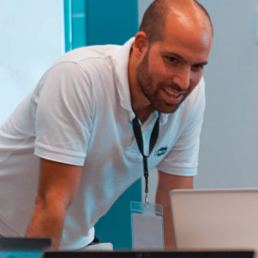
Mario Cammarota
I joined Unox in 2013 after a Master’s Degree in Physics and a PhD in Neurobiology at the University of Padua where I developed mathematical models and innovative experimental approaches to study neuronal networks in physiopatology.
At Unox I lead a team whose mission is to design and to develop smart cooking appliances for the most demanding professional catering market. We think about food as soft matter which is transformed by the cooking processes. The starting point of our research activity is the scientific study of the physical and chemical reactions that modify the organoleptic properties of the food and aims to develop all the technology needed to master these reactions in the most autonomous, efficient and reliable way.
The Interface between Artificial Intelligence and the Social Sciences - and Why it Matters
The Interface between Artificial Intelligence and the Social Sciences - and Why it Matters
Date: November 5,2021 - h 14.30 (Italian time)Where: Aula Rostagni, Physics and Astronomy Dept
The ‘secret sauce’ that made AI successful contains an important ingredient: vast samples of human behavior. From those, machine learning algorithms can extract the statistical rules that guide their own behavior: rules for recommendations, translations, image analysis, and more. Recently there have been concerns about subtle biases that might be found in AI agents, and some may be tracked just to the data that was used to train them, as well as to the fact that these agents are ‘unreadable’ to humans. Understanding the biases that are found in media content is important, as this is often what is used to teach machines to understand language. More generally, we need to understand the interface between AI and society if we want to live safely with intelligent machines.
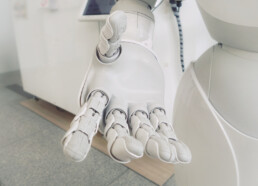
conference speaker
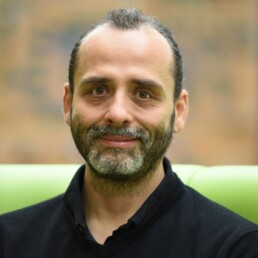
Nello Cristianini
Nello Cristianini is Professor of Artificial Intelligence at the University of Bristol. His research covers machine learning methods, and applications of AI to the analysis of media content, as well as the social and ethical implications of AI. Cristianini is the co-author of two widely known books in machine learning, as well as a book in bioinformatics. He is a recipient of the Royal Society Wolfson Research Merit Award, and of a European Research Council Advanced Grant. Before joining the University of Bristol, he has been a professor of statistics at the University of California, Davis. Currently he is working on social and ethical implications of AI. His animated videos dealing with the social aspects of AI can be found here: https://www.youtube.com/seeapattern
Le sfide del Garante: i nodi della privacy visti da chi la tutela
Le sfide del Garante: i nodi della privacy visti da chi la tutela
Live: December 4, 2020 - h. 14.30 (Italian time)
Quali sono le sfide principali che la tutela della privacy vive oggi di fronte alle nuove tecnologie? Il Vicepresidente del Garante per la protezione dei dati personali offrirà una panoramica dei temi più caldi, per poi affrontarne alcuni in particolare.
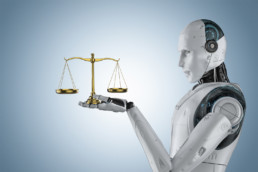
The seminar will be live-streamed on You Tube at "Aula Rostagni UniPadova DFA"
conference speaker
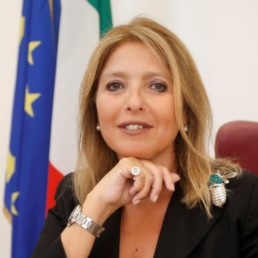
Ginevra Cerrina Feroni
Vicepresidente del Garante per la protezione dei dati personali, è professore ordinario di Diritto pubblico comparato presso l’Università di Firenze. Componente del Direttivo scientifico di numerose riviste scientifiche, membro del Direttivo dell’Associazione Italiana di Diritto Pubblico Comparato, ha fatto parte della Commissione degli esperti nominata dal Governo nel giugno 2013 per la riforma della Costituzione. È editorialista delle testate Il Dubbio, Il Giornale e il Corriere fiorentino. Ha collaborato al Corriere della Sera e al Messaggero.
AI and Legal Interpretation
AI and Legal Interpretation
Live: December 2, 2020 - h. 17:00 pm (Italian time)
How judges and lawyers figure out what a word means within a legal text? This has always been a thorny question. Among various patterns of legal interpretation, the corpus linguistics approach is a rising one. It exploits big data to understand the ordinary meaning of a word for legal purposes.

The seminar will be live-streamed on You Tube at "Aula Rostagni UniPadova DFA"
conference speaker
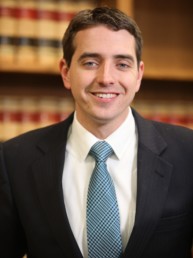
James Heilpern
James Heilpern is a pioneer in the emerging discipline of Law & Corpus Linguistics. A sought after speaker for judicial education and CLE courses, he has personally trained judges and clerks on four U.S. Circuit Courts of Appeal, one U.S. district court, and eight state supreme courts, as well as dozens of practicing attorneys around the country. As an academic at BYU Law, he helped shape the legal theory undergirding this new discipline, authoring numerous influential law review articles in top journals. Now, as president of Corpus Legal Services he empowers others–through training and consulting services–to harness the power of big data and gain the upper hand in cases ranging from constitutional questions to trademark disputes.
The Moral Machine Experiment
The Moral Machine Experiment
Live: November 10, 2020 - h. 17:00 pm (Italian time)
I describe the Moral Machine, an internet-based serious game exploring the many-dimensional ethical dilemmas faced by autonomous vehicles. The game enabled us to gather 40 million decisions from 3 million people in 200 countries/territories. I report the various preferences estimated from this data, and document interpersonal differences in the strength of these preferences.
I also report cross-cultural ethical variation and uncover major clusters of countries exhibiting substantial differences along key moral preferences. These differences correlate with modern institutions, but also with deep cultural traits. I discuss how these three layers of preferences can help progress toward global, harmonious, and socially acceptable principles for machine ethics. Finally, I describe other follow up work that build on this project.
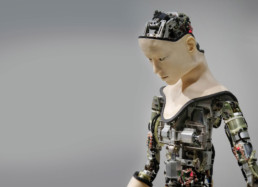
The seminar will be live-streamed on You Tube at "Aula Rostagni UniPadova DFA"
conference speaker
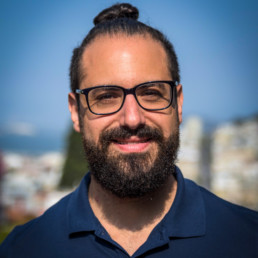
Edmond Awad
Lecturer (Assistant Professor) in the Department of Economics and the Institute for Data Science and Artificial Intelligence at the University of Exeter. He is also an Associate Research Scientist at the Max Planck Institute for Human Development, and is a Founding Editorial Board member of the AI and Ethics Journal, published by Springer. Before joining the University of Exeter, Edmond was a Postdoctoral Associate at MIT Media Lab (2017-2019). In 2016, Edmond led the design and development of Moral Machine, a website that gathers human decisions on moral dilemmas faced by driverless cars. The website has been visited by over 4 million users, who contributed their judgements on 70 million dilemmas. Another website that Edmond co-created, called MyGoodness, collected judgements over 2 million charity dilemmas. Edmond’s work appeared in major academic journals, including Nature, PNAS, and Nature Human Behaviour, and it has been covered in major media outlets including The Associated Press, The New York Times, The Washington Post, Der Spiegel, Le Monde and El Pais. Edmond has a bachelor degree (2007) in Informatics Engineering from Tishreen University (Syria), a master’s degree (2011) in Computing and Information Science and a PhD (2015) in Argumentation and Multi-agent systems from Masdar Institute (now Khalifa University; UAE), and a master’s degree (2017) in Media Arts and Sciences from MIT. Edmond’s research interests are in the areas of AI, Ethics, Computational Social Science and Multi-agent Systems.
The Role of Law, Norms, and Technology in Contact Tracing
The Role of Law, Norms, and Technology
in Contact Tracing
Join us for a roundtable discussion of these topics with Lamberto Ballan (University of Padua), Andrea Pin (University of Padua), Elisa Spiller (University di Padova), Felicia Caponigri (Notre Dame Law School), Kirsten Martin (Notre Dame Mendoza College of Business), Mark McKenna (Notre Dame Law School) and Prof. Giuseppe Sartori (General Psychology Dept., University of Padova).
Live: July 22, 2020 - h. 16:00 pm (Italian time)
Italy’s suffering and courage in the face of the coronavirus pandemic were evident to an American audience earlier this Spring. As time has progressed, the country has passed the curve’s peak and is now reopening and entering a new normal and rhythm of daily life. Part of the daily changes includes the use of a new contact tracing app, “Immuni”, developed by a private company and promoted by the Italian government. The app’s development has been shaped by EU privacy law and Italian law, and the country is currently affronting how to use it effectively. Central to this use are questions of efficacy and privacy, compliance, and even cultural norms. Within the parameters of privacy, fundamental rights, and cultural habits, can Immuni be effective? What role might law, and the technology it shapes, continue to have in our fight against the coronavirus?
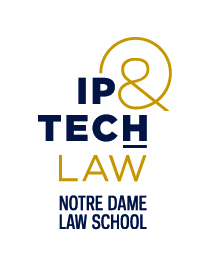
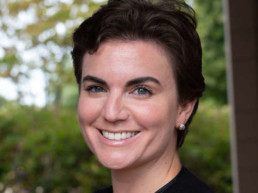
Felicia Caponigri
Program Director, Program on Intellectual Property & Technology Law
Acting Director, International and Graduate Programs
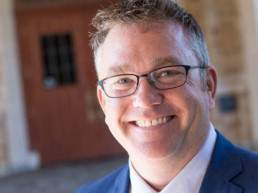
Mark McKenna
John P. Murphy Foundation Professor of Law
Director, Notre Dame Technology Ethics Center
Director, Program on Intellectual Property & Technology Law
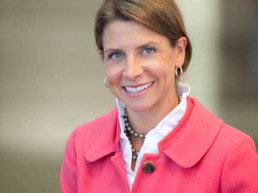
Kirsten Martin
Lindner-Gambal Associate Professor of Business Ethics and chair of the Strategic Management and Public Policy Department at the George Washington University’s School of Business
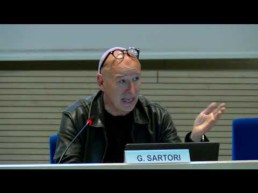
Giuseppe Sartori
Neural basis of intentions and conscious decisions. Memory detection and the Implicit Association Test. Child testimony. Malingering. Natural capacity Parenting. Psychopathy and behavioural genetics. Mental insanity and reduced capacity.
COVID-19, A.I.,Apps, and Fundamental Rights: A Transatlantic Dialogue
COVID-19
A.I.,Apps, and Fundamental Rights: A Transatlantic Dialogue
Live: May 5, 2020 - h. 17:00 pm
The seminar will be live-streamed on You Tube at "Aula Rostagni UniPadova DFA"
Fighting the pandemic is pitting health and privacy against each other in largely unprecedented ways. A conversation between two prominent legal thinkers will compare the approaches to contact tracing apps and mass surveillance in the United States and the European Union.
We will begin the seminar by asking our guests the following questions:
Within the West, many countries and supranational legal systems are struggling to find ways to reconcile the fight against the COVID-19 with the needs of preserving fundamental rights, such as privacy, mobility, etc. A lot of debates revolve around the deployment of AI-based technologies, which track down people and contagion, as they would make extreme physical constraints, such as lockdowns, unnecessary. What are the main legal issues within the EU and the U.S. that such possibilities need to face?
As we expect that the virus will stay with us for long, we are likely to need digital tools for long as well. Once the Schengen treaty returns in full force and EU citizens resort to moving quite freely within EU territories, the apps we are thinking of will ensure inter-state tracing? Is the US facing with analogous issues of decentralization?
It is rather frequent to hear the opinion that we are overestimating the issues of privacy, given the importance of health. Moreover, it is common parlance that the big tech companies already know so much about us, that is paradoxical to fear the Government and massive utilization of data to fight the virus. Are privacy issues almost fictional, in light of the tech giants’ omnipotence?
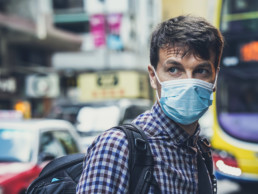
conference speaker
Woodrow Hartzog
Professor of Law, Northeastern University, Boston
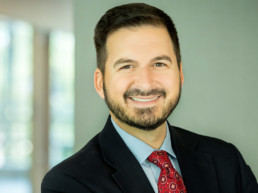
Oreste Pollicino
Professor of Law, Bocconi University, Milano
